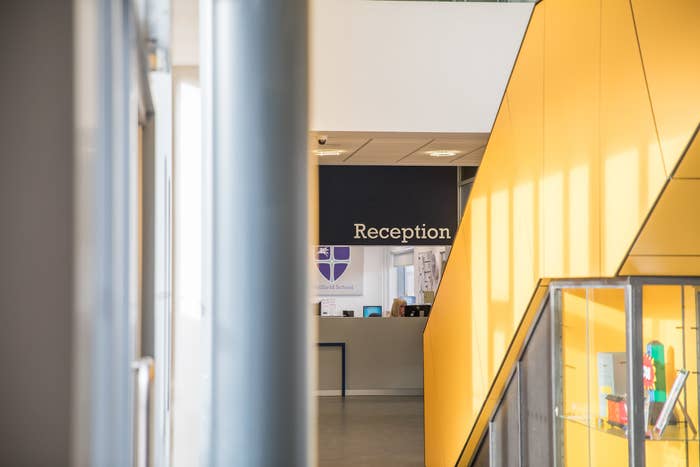
As head teacher Linda Rodham walks the corridors of Wellfield School in Wingate, County Durham, taking BuzzFeed News to see English lessons, PE classes, and the school’s kitchen, it’s clear that she is proud of what she has achieved here.
She has good reason to be — 45% of students are pupil premium children (a grant given to schools by the government for the most disadvantaged children), but the school performs well above average for pupil progress.
However, Rodham said, it hasn’t been easy. And the main problem has been funding. Schools are expected to provide more and more support for pupils as services vanish elsewhere, she said, but with no extra cash to compensate.
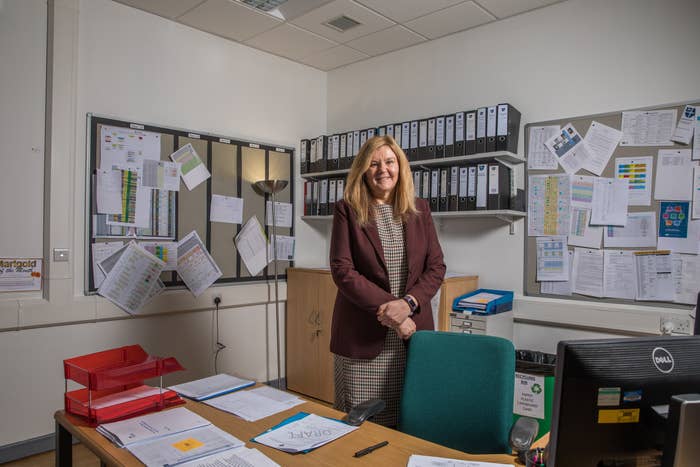
As Boris Johnson and the rest of the Cabinet head to the North East of England for a special Brexit Day meeting on Friday, the Northern Powerhouse Partnership (NPP) — a flagship project to boost investment in the North, set up under the coalition government — is asking for £1 billion a year in extra funding for schools like Wellfield.
If Johnson wants to deliver for the “Blue Wall” seats that elected Conservative MPs for the first time in December, he needs to invest in improving education and skills for people in those constituencies, Henri Murison, director of the NPP, told BuzzFeed News.
Just 17% of secondary schools are rated outstanding in the Northern Powerhouse area — almost half the London figure of 36% and significantly below the England average of 21%.
In contrast, 10% of secondaries in the Northern Powerhouse area are inadequate, more than double the London figure of 4% and above the England average of 7%.
The NPP identified the schools nationally which have the most disadvantaged children using Education Data Lab data, and mapped these with Ofsted results, which showed that just 4.3% of those schools - predominantly in the north of England - were outstanding, while 13.8% were inadequate.
According to research from the NPP, two-thirds of schools with the most long-term disadvantaged students from ethnic groups that overall do worse at school — white girls and boys — are concentrated in northern schools.
“We don’t have enough money in the system in these very austere times to be able to fund especially disadvantaged children having the same opportunities, and that’s a great shame,” Rodham told BuzzFeed News.
What is needed, she said, is a concerted effort from government to improve northern schools, on the level of Labour's London Challenge in the early 2000s, which significantly improved standards in the capital.
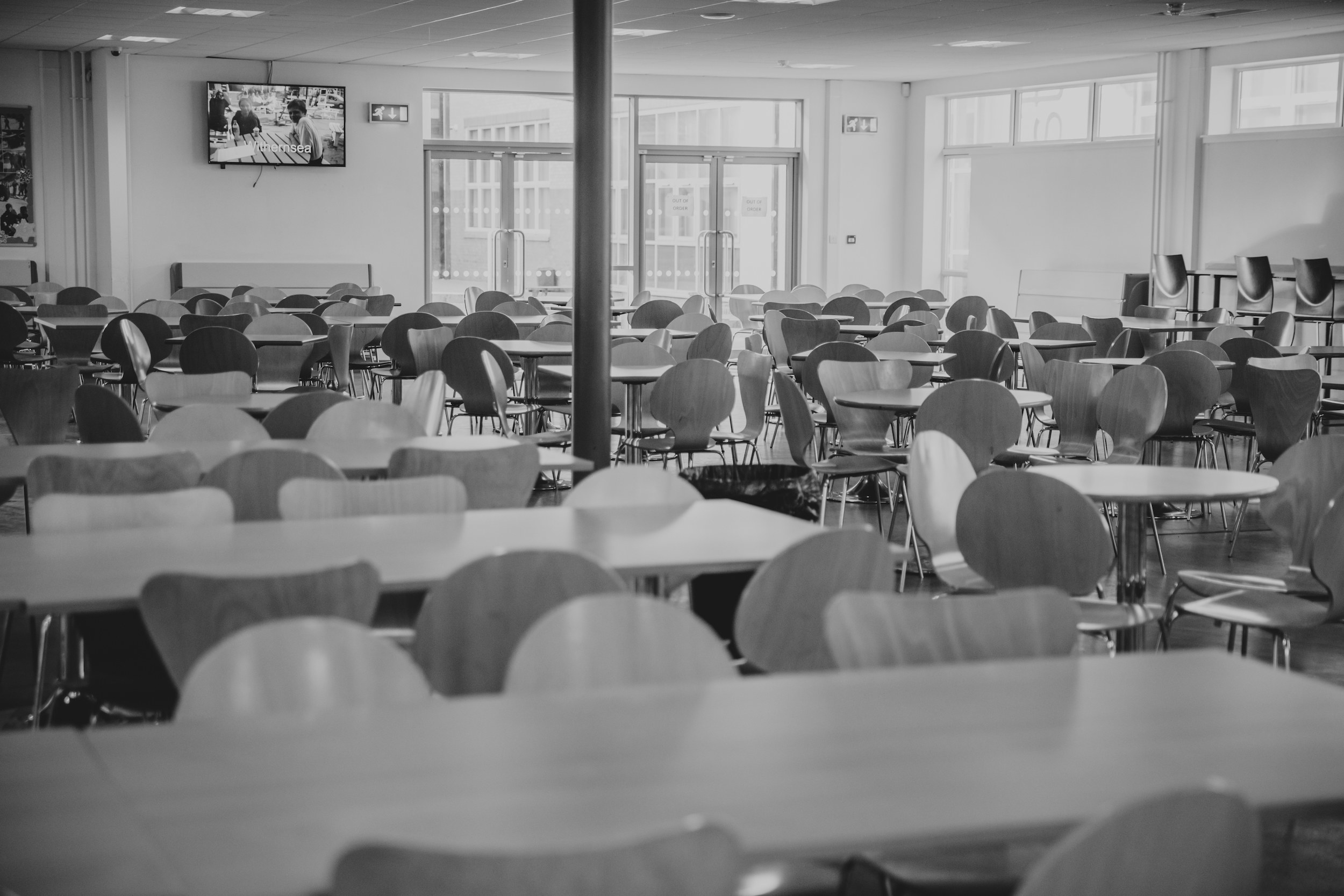
Funding in real terms has gotten tighter, she explained, as more pressure is piled on teachers and leaders. At Wellfield, her dedicated staff work for free after school and in the holidays, because the children need them to, but she can’t afford to pay them for the extra hours.
“Funding per child has not really improved or kept abreast with inflation,” she said. “So you have things like energy prices, everything's going up. And really the funding for children per child, it just hasn't kept up with inflation.”
Describing the funding situation as “tight, very tight,” she explained, “I've spent eight years building the school. And, you know, I'm sick of penny-pinching.”
“It's worse and we're having to do more, because you haven't got all these agencies around the child anymore,” she added.
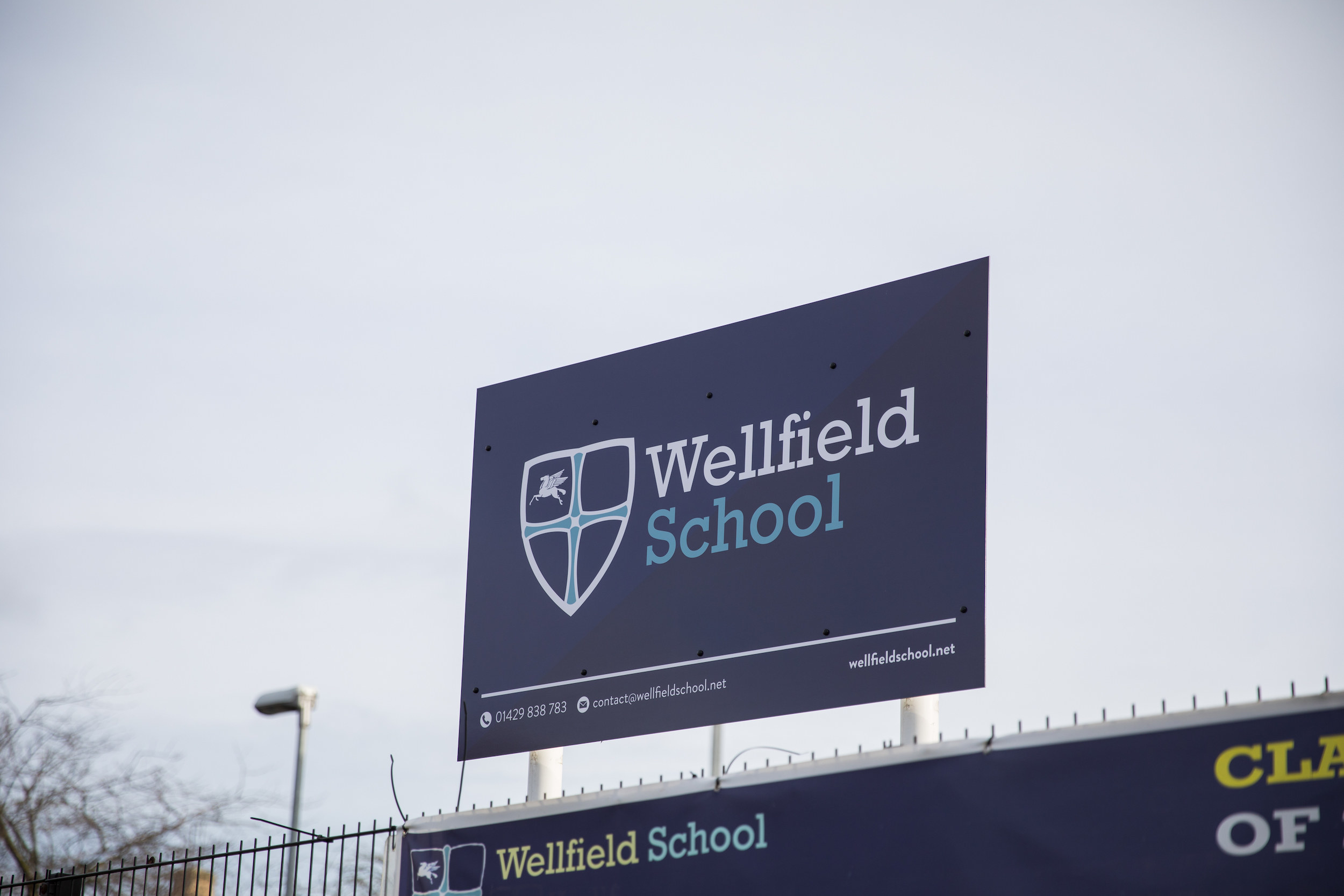
“You haven't got the Sure Starts, you haven't got the access that we had to social services. You haven't got the access that we had to One Point [advice and support services for young people], you haven't got the access to local authority services who used to intervene.
“You’re having to do it all yourself. So I've got a waiting list, I'll give you an example. I've got a waiting list for children wanting to see the... school counsellor she’s only in one day a week. I could do with her full time because I can't now refer her children to other places whereby previously we would have been able to do that, it's a real issue.”
“All of these issues in society are falling more and more within the realms of education and I feel as though at the moment we’re just absolutely flooded,” she added.
Rodham told BuzzFeed News that, in her view, investment in education is “absolutely” key if the government wants to attempt to close the North–South divide.
At his first party conference as prime minister, in Manchester, Johnson said it was his government’s job to end inequality between the North and South of the country and to "unlock talent in every corner of the UK."
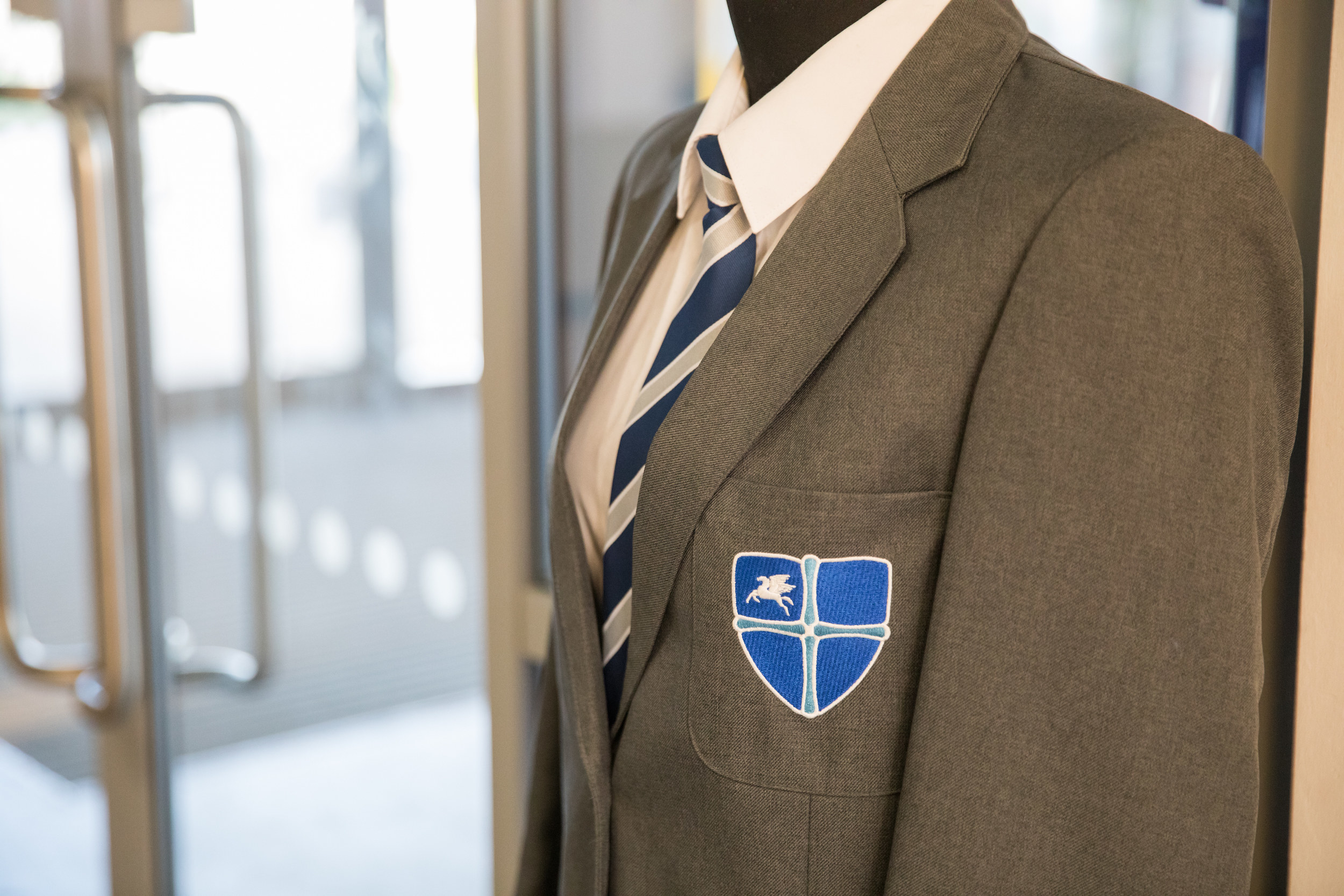
According to Rodham and to the NPP, chaired by former chancellor George Osborne, one key part of this will be investing in schools.
“You will not improve society unless you tackle the disadvantages around education,” Rodham said. “Education is the key. It's the key, if you think about it, when this school closes for a holiday, there is always more social unrest with teenagers, out and about in the areas.
“It is the key because a lot of the discipline around some of the more challenging behaviour, shall we say, and characters, it's controlled in school. Where parenting is in crisis or there's an issue, it is reflected in our communities. So I can't emphasise [enough] that education is the key to making a better society.”
However, education is just one part of it. In order to truly level up, the government needs to address systematic disadvantage between families in their catchment area — some are very affluent, Rodham said, and some children are very, very poor.
“Wouldn't it be great if we didn't have any pupil premium children at all in this country?” deputy head teacher Gary Potts added.
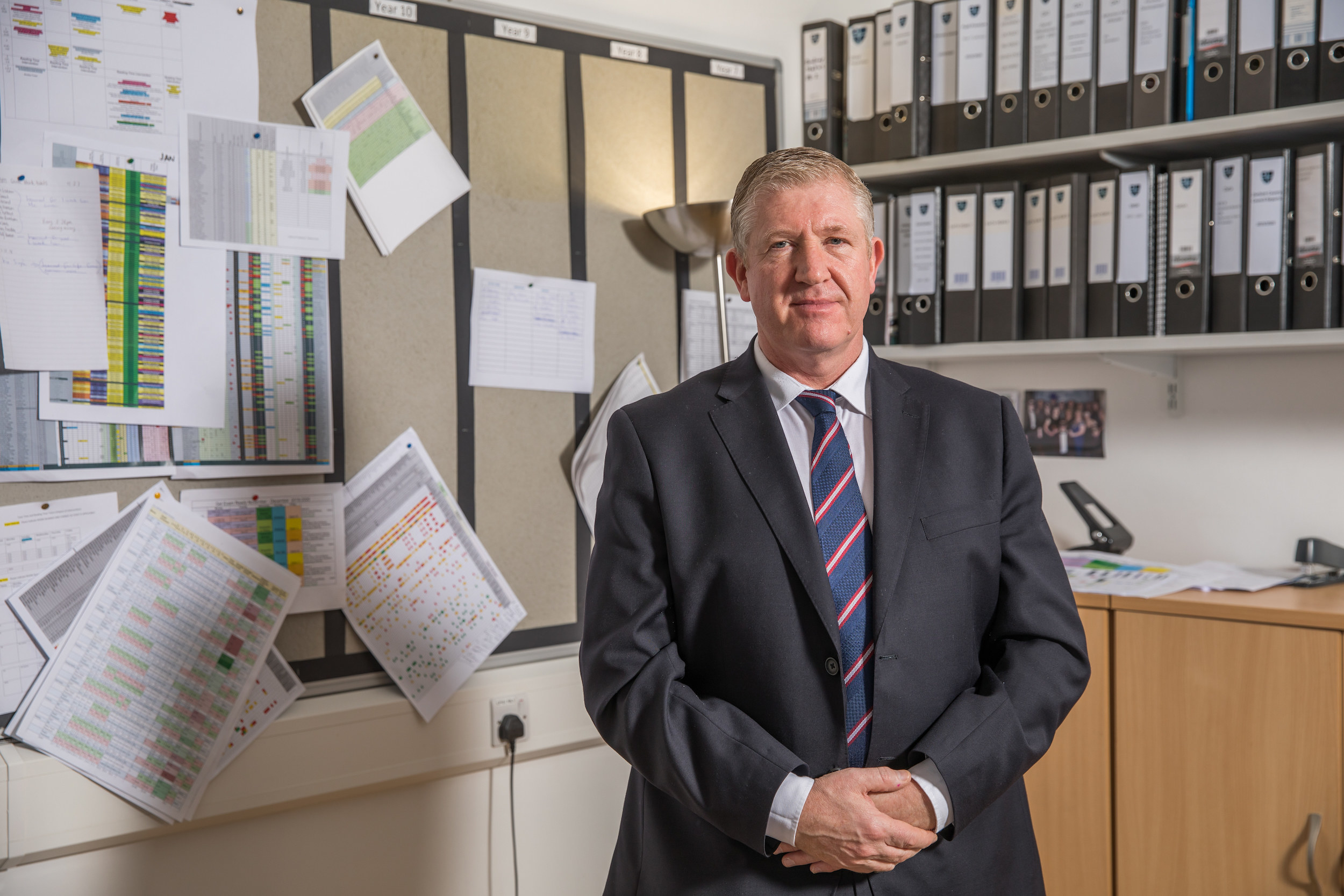
“Wouldn't it be great if all children, when they came to school, came with a level of background, parents in work, parents coming home with a fair wage and not coming into school without basic equipment, basic clothing, and in some cases, children coming in hungry.
“We've got a fantastic kitchen team — you will see that the kitchen staff do a tremendous job. You know, we've talked about making sure children are fed during the school day well, that's absolutely vital. Children can't learn if they're hungry. We feed them after school when they need to do after-school clubs and they’re doing after-school learning, we feed them in the holidays, that all takes money.
“We opened the school up a year ago on Christmas Day, and we even put a Christmas lunch on for people in the community. So in one sense, if the government can do anything, it's to start taking away a disadvantage in this country and making sure that we level the whole country up so we don't have the problems in the first place.”
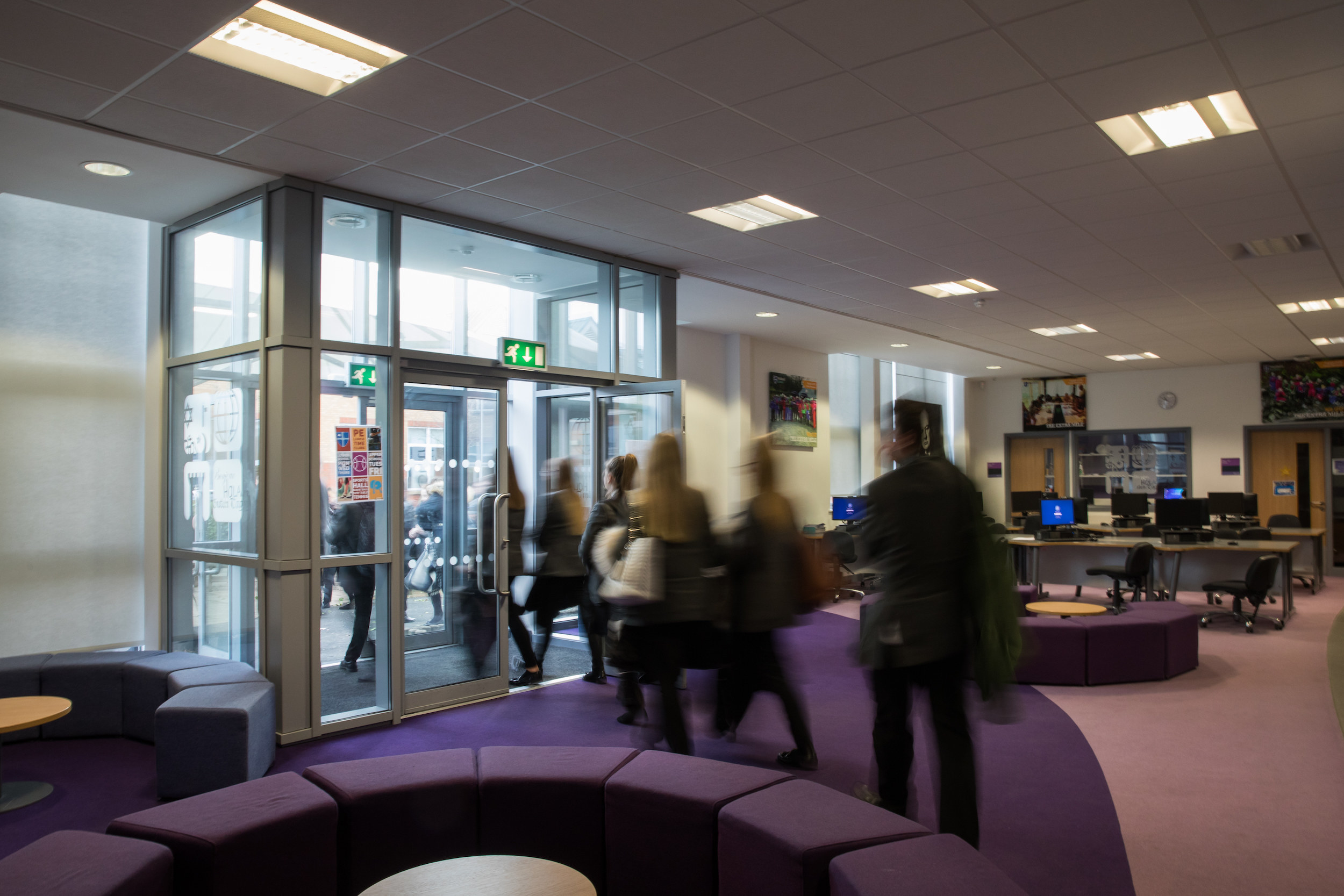
The previous Labour MP, Phil Wilson, who lost his seat in December, was very supportive of the school, Rodham said, “he was from the area understood, obviously, the challenges, but was not part of the government.”
Now Sedgefield has a new Conservative MP, Paul Howell, the first Tory to be elected in the seat since 1931. Rodham said the onus is on him to deliver for his constituents. He did not respond to requests for comment.
“I would like him to lobby the government for more funding for northern schools, for the region,” she said. “I do intend to invite him to the school to have a look at the school and to talk to me. I'd like to see him talking to leaders in the region so he has a true picture, a true, honest picture, of the needs of education in this area, and for him to then take that back to government.
“I'd really like, I’d love Boris Johnson to come here. I really would. I would welcome him here. I want to promote a positive narrative around North East education. And that's what we need. We don't need the think tanks etc. for people to say it’s all great in the South and it’s all bad in the North, that is not the case.
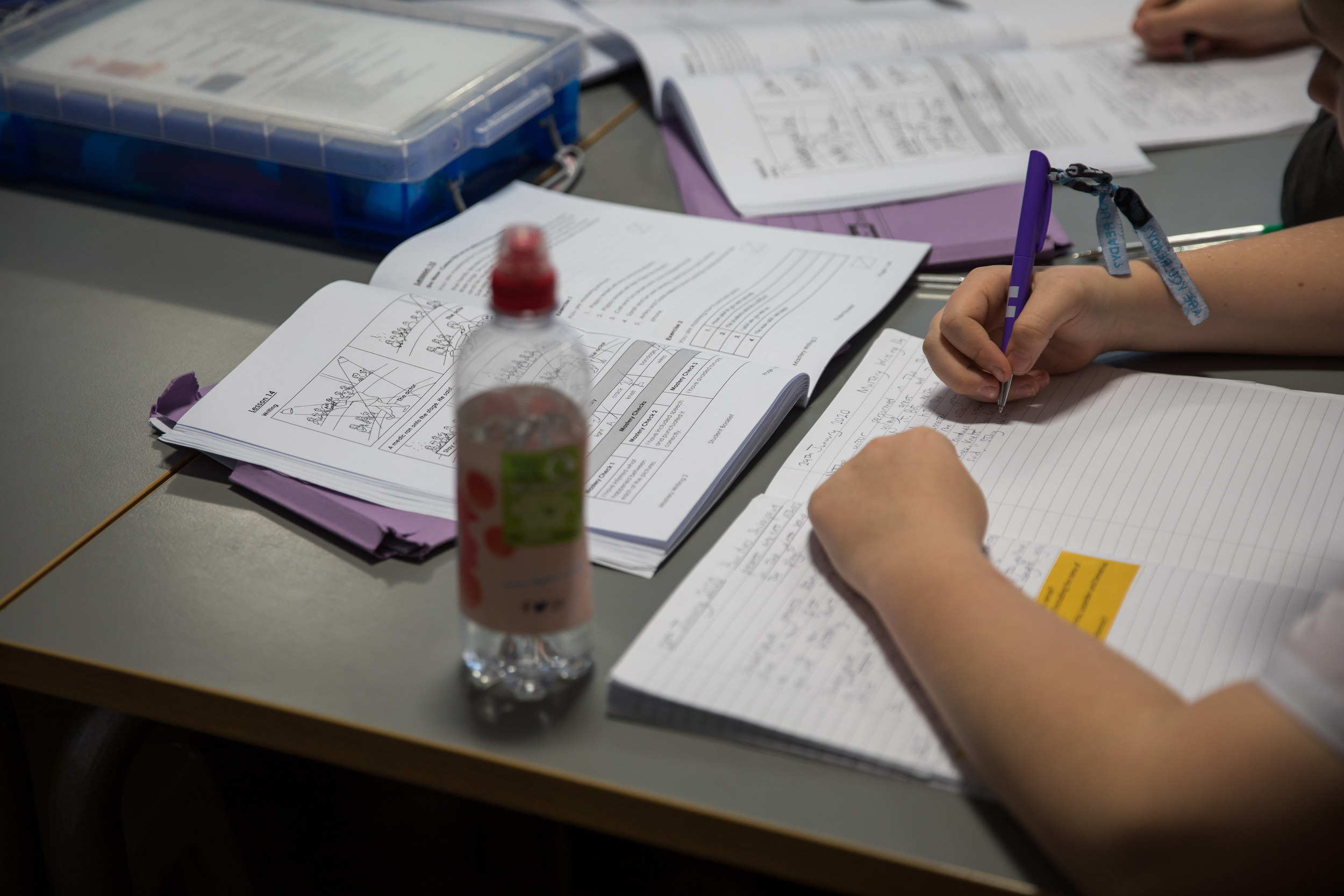
“How can a school like us do so well, with 45% of children who are disadvantaged in this area with very little funding? How is our English and maths above the national [average]. I’ll tell you how — by really good leadership by good, quality first teaching, and a lot of effort. With very little money and funding.
“I would love someone senior, including Boris Johnson, to come here and just walk around our classrooms and see what has been achieved. And I'll certainly be contacting the new MP and asking him to come in.”
“As the Cabinet travels to the North East, it is critical for the PMs credibility in ‘Blue Wall’ seats that they will discuss the productivity issues in the Northern Powerhouse which were not highlighted during the election,” Murison told BuzzFeed News. “For example, in the case of education and skills both are undoubtedly critical alongside connectivity.”
He explained: “Our research has identified the secondary schools in the country teaching those from the most challenging backgrounds and they were overwhelmingly in the North.
“Funding these schools better alongside local primaries and further investing in the early years could help us to ensure every one of these children achieved their full potential. Alongside phenomenal leaders like the head teacher at Wellfield School in County Durham, further investment of £1 billion annually targeted at those who have been in homes which are less well off throughout their time at school and are from groups that do worse like white girls and boys, could make all the difference when they are facing unprecedented challenges.”
On Thursday, education secretary Gavin Williamson announced a new initiative to “drive up school standards” in the North East, with £24 million set aside for “giving extra training to teachers, improving key secondary schools in the region, developing young people’s access to employers and universities and bolstering links between primary and secondary schools”.
The same day, the prime minister announced that each secondary school has been guaranteed at least £5,000 per pupil next year, and every primary school at least £3,750 per pupil in new legislation laid before parliament.
Johnson said: "Levelling up education is the key to helping every child reach their full potential. We’re guaranteeing the minimum level of funding for every pupil in every school so that, with a top-class education, our children can go on to become the world’s future innovators, trailblazers, and pioneers.
"As we start a new chapter in our history, our younger generations will be front and centre of all that we do."
However, the NPP has its sights set on rather more substantial sums.
